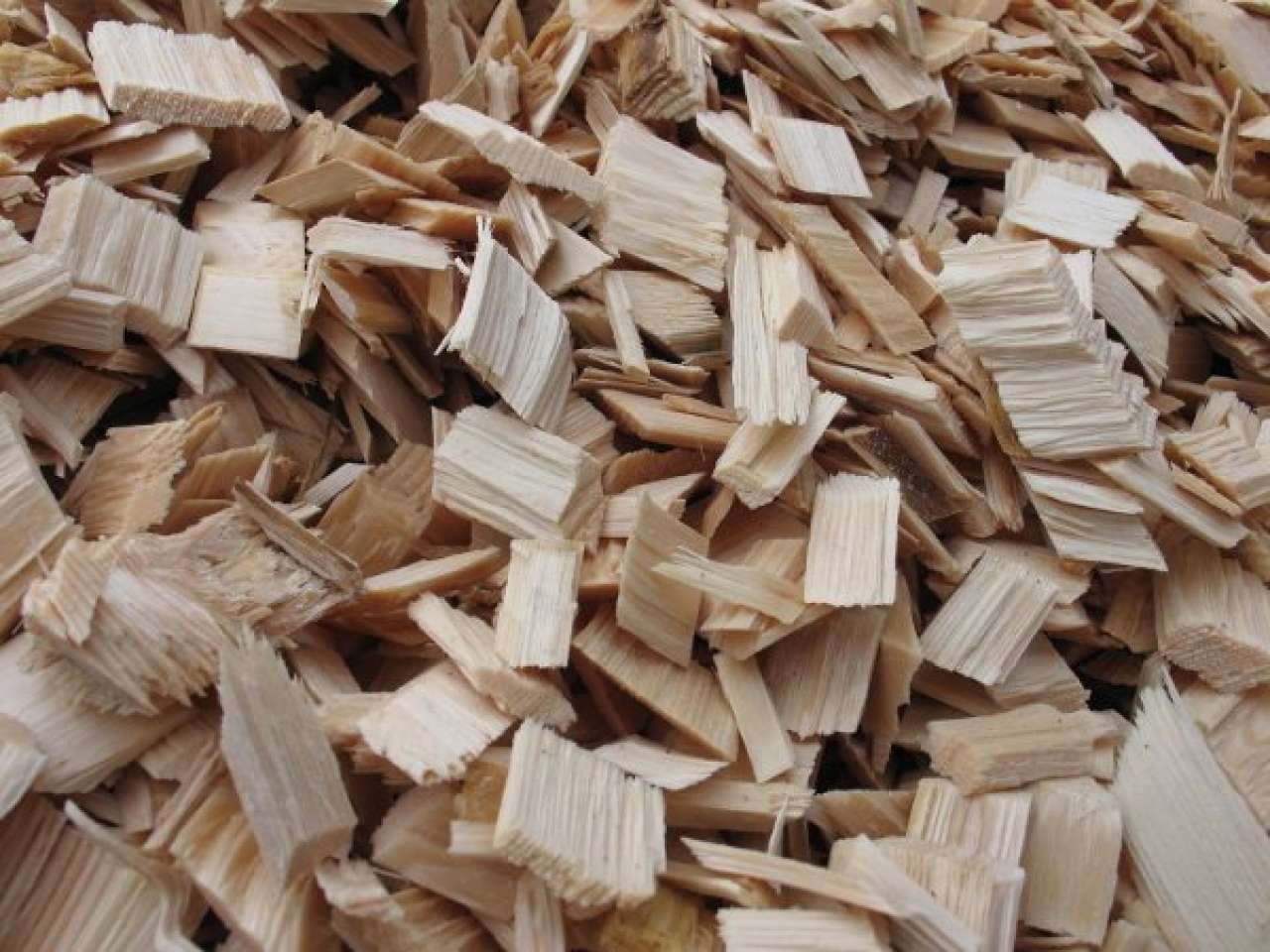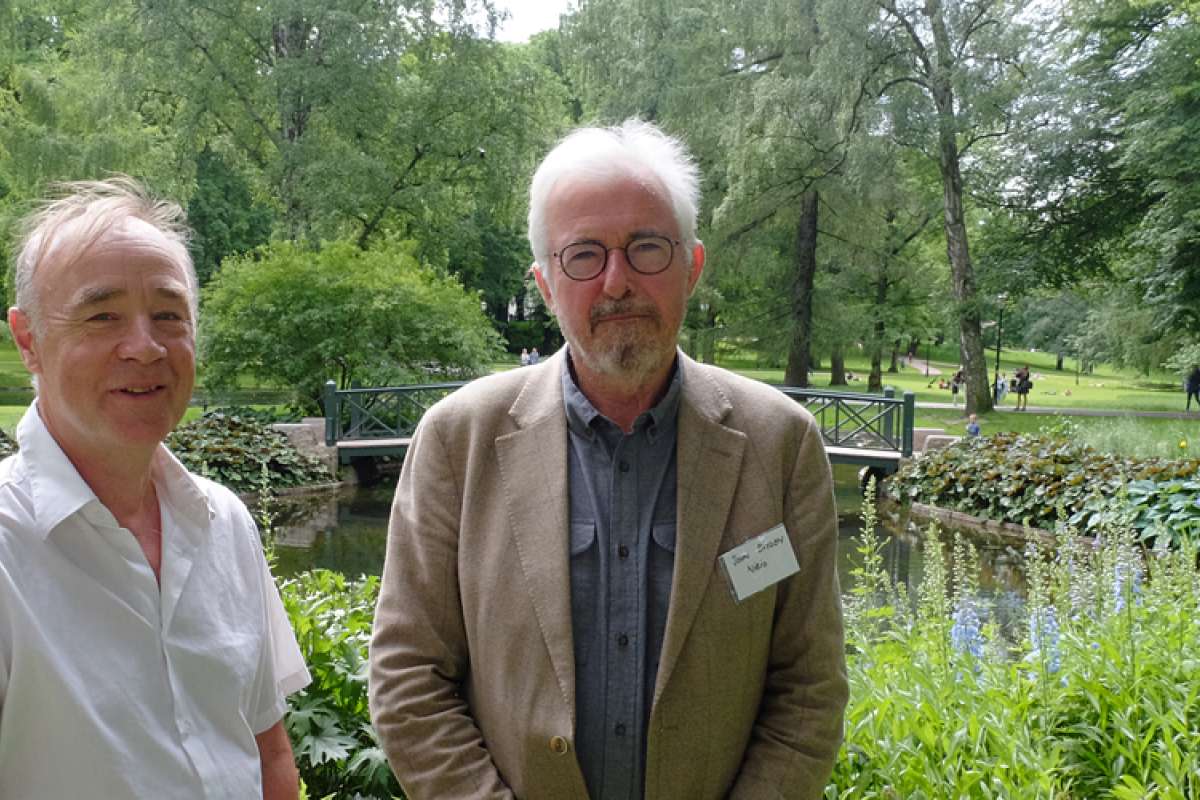Division of Food Production and Society
TRIBORN - Triple Bottom Line Outcomes for Bioenergy Development and Innovation in Rural Norway

End: jun 2017
Start: jan 2014
Project participants
Karen Refsgaard Rasmus Ole Rasmussen Lampros Lamprinakis Anders Christian Hansen Anne Strøm Prestvik Valborg Kvakkestad Bjørn Egil Flø| Start - end date | 01.01.2014 - 30.06.2017 |
| Project manager | Atle Wehn Hegnes |
| Project manager at Nibio | Nicholas Clarke |
| Division | Division of Food Production and Society |
| Department | Economics and Society |
| Partners | Nordregio, Norsk institutt for naturforskning, University of Santiago de Compostela, Sveriges lantbruksuniversitet, CISA (Italy), Energigården, Hansen Economics. |
| Total budget | NOK 16,1 mill. |
| Budget this year | NOK 4,5 mill. |
| Funding source | The Research Council of Norway |
Summary
The project investigates how to increase production of bioenergy in ways that promote sustainable development understood as positive economic, social and environmental outcomes - in rural areas. A wide body of research on innovation in renewable energy and its impacts on rural people has questioned the notion that such outcomes are inevitable, and can be taken for granted. Specific forms of bioenergy and related policy innovation may improve energy security and flexibility in rural areas, development of rural economies and communities and climate friendly energy.
This project aims to understand and foster systems for bioenergy innovation and related support policies that can produce such positive social, economic and environmental outcomes. We apply and aim to develop a method for developing Regional Innovation Systems approaches that is capable of producing such outcomes in different social, economic and political contexts - a method called the Grounded Innovation Platform (GRIP) approach and is a bottom-up process based on involvement of private and public stakeholders to generate legitimate rural development.
The project will generate knowledge on key factors for success and failure in platform building by comparing cases in Norway, Sweden, Finland and Italy. Especially Sweden and Finland have achieved good results. We will test and further develop the GRIP-approach by mobilising industry, energy users, farmers, NGOs and governing agencies in the construction of regional innovation platforms under different conditions.
The project will contribute to knowledge about outcomes of the development of renewable energy on economic opportunities, social viability and acceptance and environmental sustainability in rural economies; the ability of GRIPs to facilitate innovation within bioenergy production, related policies and governance structures; the ability of GRIPs to fulfil the national RED targets and to reduce negative impacts through sustainable forest management.
Work Packages
| WP | WP description | WP leader |
| WP1 | Project coordination and management | Karen Refsgaard |
| WP 23 | Data gathering, GRIP-facilitation, evaluation of outcomes and policy instrumentation | |
| WP23a | Identify case study areas in Norway, Sweden, Finland and Italy | Karen Refsgaard |
| WP23b | Map and interview stakeholders in N, S, F and I | Karen Refsgaard and Rasmus Ole Rasmussen |
| WP23ck | Identification of, monitoring of, and dialogue with GRIPs | Atle Wehn Hegnes and Rasmus Ole Rasmussen |
| WP23d | Biofuels | Lampros Lamprinakis |
| WP23e | CO2-capture – balancing use of forests for carbon storage and bioenergy | Nicholas Clarke |
| WP23f | Evaluation of environmental impacts | Nicholas Clarke and Bjørn Egil Flø |
| WP23g | Field studies of effects of intensified biomass removal from forest for bioenergy | Nicholas Clarke |
| WP23h | Policies and institutions for the development of bioenergy | Anders Chr. Hansen |
| WP23i | Data gathering bioenergy chain NO | Lampros Lamprinakis |
| WP23j | Citizens survey | Anne Strøm Prestvik |
| WP-PhD | Comparison of Rural Development Impacts of Bioenergy in Italy and Norway | Bianca Cavicchi with super visors: Olav Wicken (University of Oslo) and John Bryden |
| WP4 | Action and knowledge implementation | Karen Refsgaard |
Publications in the project
Authors
John Marshall Bryden Stig Strandli Gezelius Karen Refsgaard Judith SutzAbstract
In this introduction to the special issue on inclusive innovation in the bioeconomy, the authors highlight inclusive innovation’s significance to economies that provide the vital resources of food, water, and energy. Innovation in the bioeconomy raises questions of environmental sustainability, human survival, social justice, and human rights. This article thus emphasizes, especially, the roles that institutions play regarding innovation in the bioeconomy. The authors suggest that inclusive innovation be defined as new ways of improving the lives of the most needy. They outline research implications of this definition, and relate these implications to debates about the modes and ethics of innovation. They argue that innovation systems’ design affects these systems’ potential for inclusiveness as well as their value premises. Finally, the contributions to this special issue are introduced and discussed in light of the special issue’s overall purpose and framework.
Authors
John Marshall Bryden Stig Strandli GezeliusAbstract
No abstract has been registered
Authors
Biancha Cavicchi Sergio Palmieri Marco OdaldiAbstract
No abstract has been registered
Abstract
No abstract has been registered
Authors
Biancha CavicchiAbstract
No abstract has been registered
Abstract
No abstract has been registered
Abstract
Increased forest biomass production for bioenergy will have various consequences for landscape scenery, depending on both the landscape features present and the character and intensity of the silvicultural and harvesting methods used. We review forest preference research carried out in Finland, Sweden and Norway, and discuss these findings in relation to bioenergy production in boreal forest ecosystems. Some production methods and related operations incur negative reactions among the public, e.g. stump harvesting, dense plantation, soil preparation, road construction, the use of non-native species, and partly also harvest of current non-productive forests. Positive visual effects of bioenergy production tend to be linked to harvesting methods such as tending, thinning, selective logging and residue harvesting that enhance both stand and landscape openness, and visual and physical accessibility. Relatively large differences in findings between studies underline the importance of local contextual knowledge about landscape values and how people use the particular landscape where different forms of bioenergy production will occur. This scientific knowledge may be used to formulate guiding principles for visual management of boreal forest bioenergy landscapes.
Abstract
No abstract has been registered
Authors
Tonje Økland Jørn-Frode Nordbakken Holger Lange Ingvald Røsberg O. Janne Kjønaas Kjersti Holt Hanssen Nicholas ClarkeAbstract
No abstract has been registered
Authors
Tonje Økland Jørn-Frode Nordbakken Holger Lange Ingvald Røsberg O. Janne Kjønaas Kjersti Holt Hanssen Nicholas ClarkeAbstract
Whole-tree harvest (WTH), i.e. harvesting of forest residues (twigs, branches and crown tops) in addition to stems, for bioenergy purposes may lead to biodiversity loss and changes in species composition in forest ground vegetation, which in turn also will affect soil properties. Effects of clear-cut harvesting on ground vegetation have been investigated at two Norway spruce sites in southern east and western Norway, respectively, differing in climate and topography. Experimental plots at these two sites were either harvested conventionally (stem-only harvest, SOH), leaving harvest residues spread on the site,or WTH was carried out, with the residues collected into piles at the site for six - nine months prior to removal. Vegetation plots in the eastern site were established and analysed before WTH and SOH in 2008 and reanalysed after harvesting in 2010, 2012 and 2014. In the western site vegetation plots were established before WTH and SOH in 2010 and reanalysed after harvesting in 2012 and 2014 (and planned for 2016). All vegetation plots are permanently marked. Pre-as well as post-harvesting species abundances of all species in each vegetation plot were each time recorded as percentage cover (vertical projection) and subplot frequency. Environmental variables (topographical, soil physical, soil chemical, and tree variables) were recorded only once; before WTH and SOH. Effec ts of WTH and SOH on ground vegetation biodiversity and cover are presented.
Authors
John Marshall BrydenAbstract
No abstract has been registered
Authors
John Marshall BrydenAbstract
No abstract has been registered
Authors
John Marshall BrydenAbstract
No abstract has been registered
Authors
John Marshall BrydenAbstract
No abstract has been registered
Abstract
No abstract has been registered
Authors
Tonje Økland Jørn-Frode Nordbakken Holger Lange Ingvald Røsberg O. Janne Kjønaas Nicholas Clarke Kjersti Holt HanssenAbstract
No abstract has been registered
Authors
Tonje Økland Jørn-Frode Nordbakken Holger Lange Ingvald Røsberg O. Janne Kjønaas Kjersti Holt Hanssen Nicholas ClarkeAbstract
No abstract has been registered
Authors
John Marshall Bryden Stig Strandli Gezelius Karen RefsgaardAbstract
No abstract has been registered

